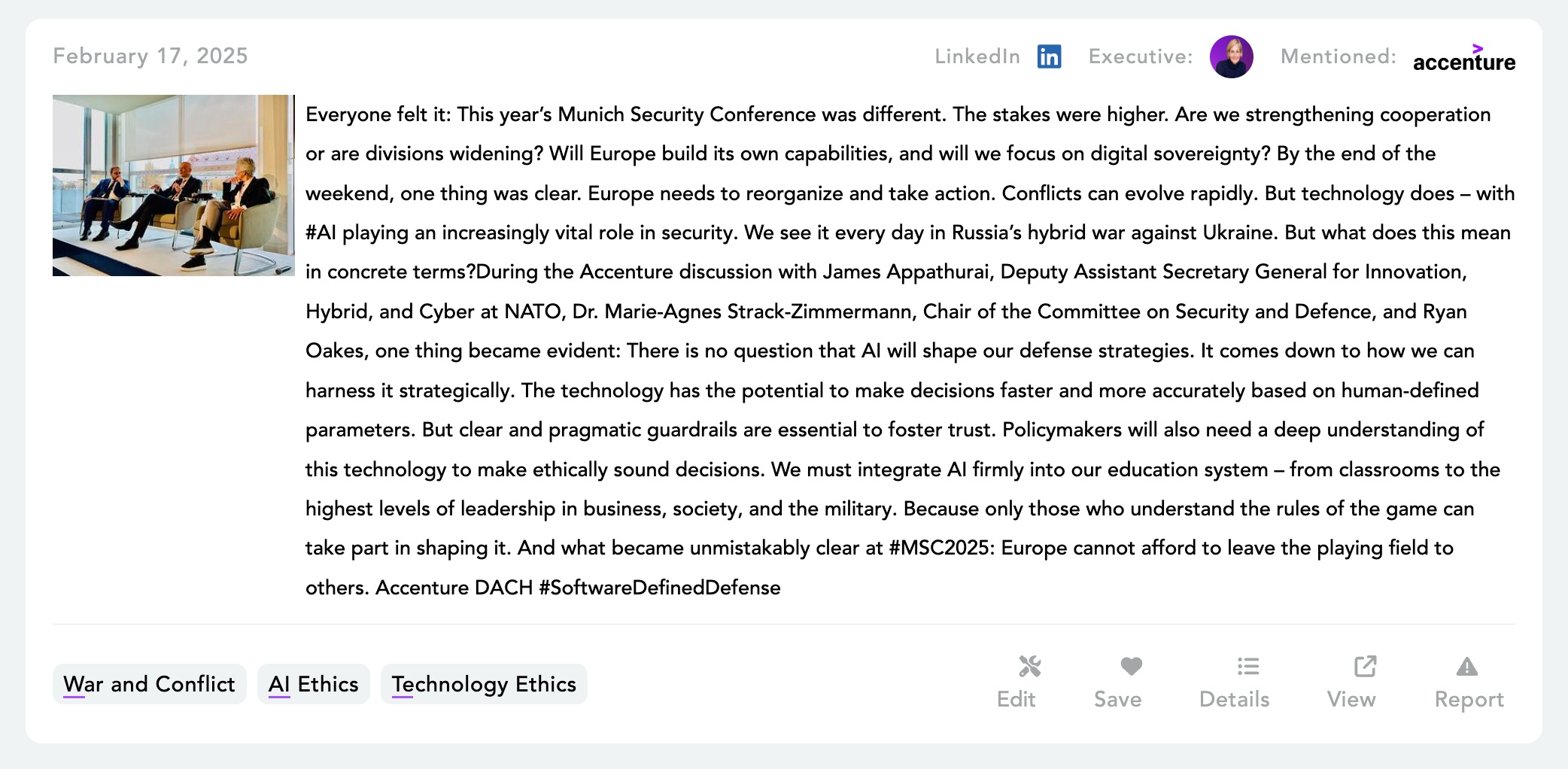
Executive Silence: Declining C-Suite Support for Ukraine
Over the past three years, discussions about the war in Ukraine have dominated headlines and social media feeds. But our latest analysis of social media trends—particularly LinkedIn data—reveals a surprising shift: overall discussion of war and conflict is declining, even as geopolitical tensions remain high.
More notably, executive engagement on Ukraine has flatlined. Even after last week’s high-profile clash between Donald Trump and Volodymyr Zelensky at the White House, C-suite leaders did not increase their public commentary. This marks a departure from the early days of the conflict when executives from major corporations openly voiced support for Ukraine, pledged donations, or took stances against Russian aggression and cyber attacks.
The Decline in Executive Engagement
LinkedIn has long been a barometer of professional sentiment, particularly among executives who use the platform to shape discourse on pressing global issues. In 2022, support for Ukraine was not just a political statement but a business decision—companies were quick to signal solidarity, cut ties with Russia, and align themselves with Western sanctions.

Fast forward to 2025, and that same energy is fading. Our data shows:
- Overall war-related discussions are dropping, indicating a broader shift in social media focus.
- C-suite executives have significantly reduced their public engagement on Ukraine, even during major news events.
- Even among industries historically vocal on geopolitical issues, there is a cooling effect, possibly due to political caution or shifting business priorities.

Why Is Support Waning?
Several factors explain this decline in executive commentary:
- Trump’s Mandate to End the War – With Donald Trump securing an election victory, he has made it clear that he wants to bring the Ukraine war to a close. Many executives may be avoiding statements that could put them at odds with the new administration’s approach.
- Geopolitical Fatigue – After two years of war, attention spans are shifting. The longer a conflict persists, the harder it is to maintain public interest, even among business leaders.
- Business Priorities Have Shifted – Inflation, AI, and economic uncertainty are now dominating boardroom conversations, pushing geopolitical issues lower on the priority list.
- Brand Risk & Polarization – Speaking out on geopolitical issues is increasingly seen as a double-edged sword. Executives may fear backlash from polarized audiences or are adopting a wait-and-see approach as Trump reshapes U.S. foreign policy.
What This Means for Business and Policy
The declining C-suite engagement on Ukraine raises important questions. Will corporate support continue to decline? Are businesses shifting to a more neutral stance on geopolitical issues? And how does this change the way governments and advocacy groups engage with the private sector on matters of foreign policy?
What is clear is that the corporate world is re-calibrating its stance on global conflicts. As social media conversations wane, the next phase of executive engagement—if it happens at all—may be behind closed doors rather than in public statements.
For businesses, policymakers, and advocacy groups, understanding this shift is critical. If executive leaders are moving on from Ukraine, what will it take to bring their attention back?
Track the state of geopolitical and other critical corporate issues as they play out live, in real time, with Cometrics.